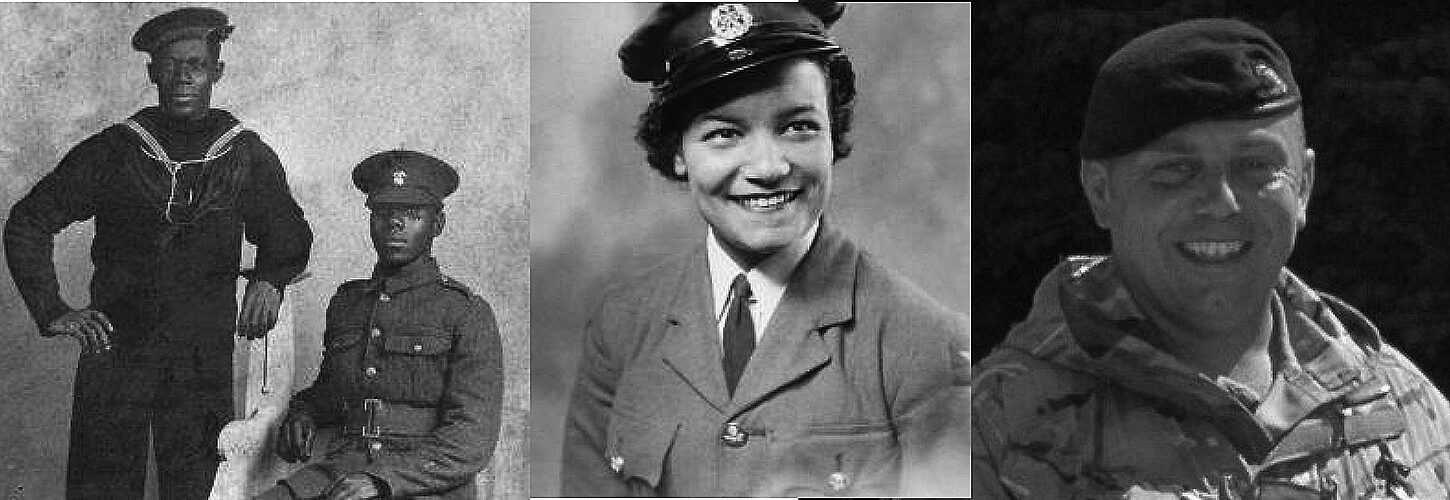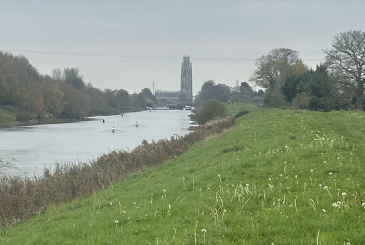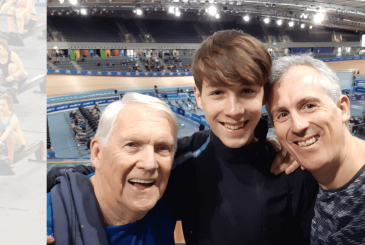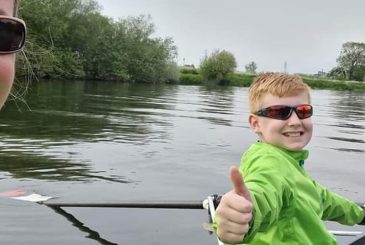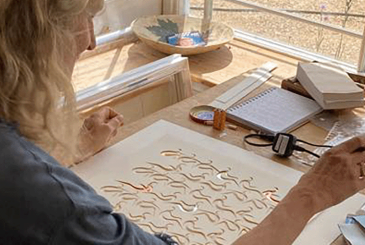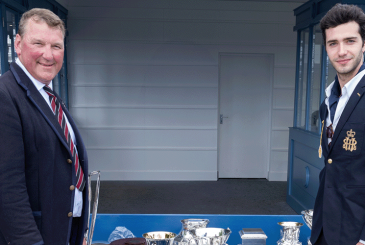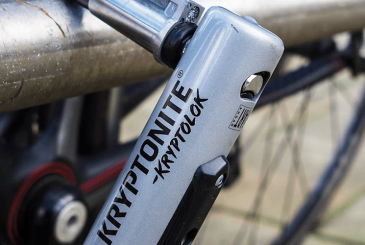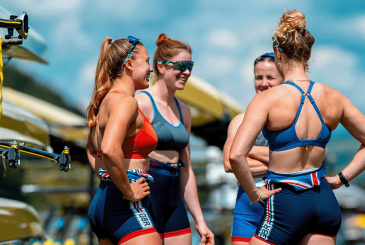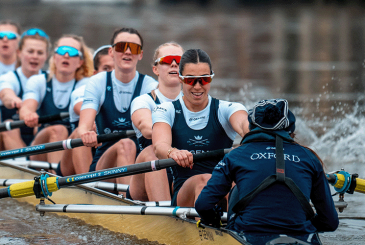Major Brett Bader’s comes from a military family with fascinating stories of dedication and sacrifice. He tells Martin Cross more
By any stretch of the imagination Major Brett Bader has led a notable life. Rowing’s Wessex and South-East coach educator has served a tour of duty in Iraq. He has experience running coaching courses in a range of sports from rugby, athletics, triathlon and through to dodgeball.
For the last two years he was the coaching course coordinator for the Army Rowing Association. He enjoys being one of the two national coach educators for the new coastal sculling award. And he’s been asked by World Rowing to deliver on that programme too – but amongst all those responsibilities it’s impossible to ignore Brett’s enthusiasm for his family roots.
There lies an extraordinary story that takes in some of the first people of colour to serve in the British armed forces over two world wars. It’s such a great story of both diversity and remembrance, that the BBC has recently interviewed Brett. The resulting film will air as part of the BBC’s commemoration services on Remembrance weekend this year.
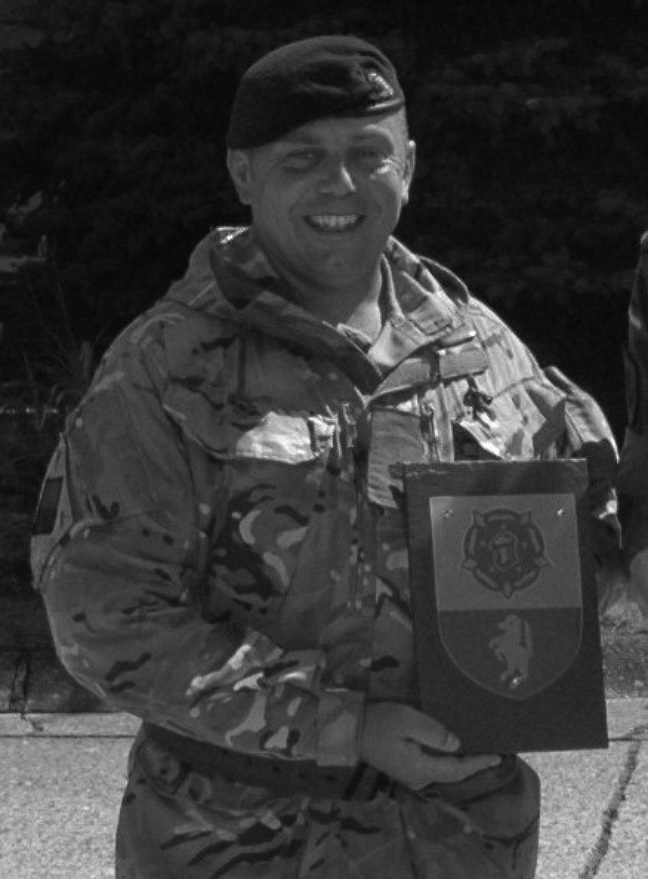
Brett was working as a teacher and coaching in both rowing and rugby when he decided to join the army reserves in 1994. Given his family background, he’d initially wanted to join the Royal Marines Band Service after leaving school but was persuaded by a recruitment officer to carry on with his education and look to enter the army as an officer.
“While I was doing my PGCE at Bath University, I had this sort of epiphany moment that by staying in the reserves I could do both teaching and have a career in the army.”
It was a lifestyle that suited Brett. And when he talks about the many responsibilities and activities that currently fill his life you find yourself naturally wondering how anybody could possibly find time to fit all those into an already crowded schedule. Into that schedule, through 2004 to 2005, Brett served with the British Army in Iraq.
“I was second in command of the civil and military cooperation group out there. So, because my first degree was in environmental science and I could speak a little bit of Arabic they told me I was ideal to go and work in communities.”
Brett found himself working with geographical information systems, on projects like sorting out infrastructure, sewage and rubbish clearance.
“I became the person who would walk out of meetings and get things done the Arabic way and actually saved the UK Government about three times the price.”
Through a link with the Youth Sport Trust Brett also got table tennis equipment shipped out to help with engagement in schools.
“That stopped the kids throwing stones at the soldiers. So, we were one of the only units that actually walked around wearing berets for our operational tour. So, it just completely changed the culture, the dynamics of things.”
And it wasn’t just working with engagement. Brett also became a spotter in an RAF Puma helicopter helping coordinate infantry activities on the ground.
In many ways, therefore, Brett was carrying on the pioneering work first done by his relatives. His enthusiasm to tell the stories of those remarkable people is both understandable and inspirational. It’s what captivated BBC TV.
“I got a phone call from a BBC researcher. At first, I thought somebody was having me on.
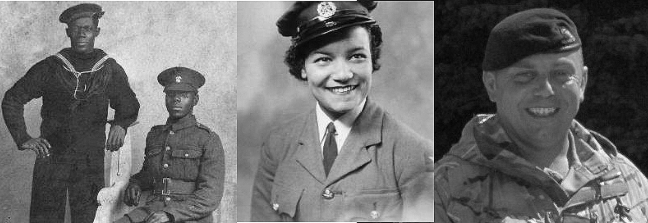
“They told me we want to do some work about your family and its ancestry of being mixed race. It goes back to my great grandfather: Marcus Bailey. He was born in Bridgetown, Barbados in 1883.”
Brett explained: “People just don’t realise that immigration to the UK from the West Indies started well before the Windrush generation. Marcus worked on trawlers in the fishing industry out of Hull and Fleetwood. During the early part of the war, he held the position of a mate which was at the time an extremely unusual role for a black man.”
But Marcus’s most notable achievement came when he served on HMS Chester during the Battle of Jutland in 1916. Chester sailed ahead of the British Grand Fleet. These were the days before radar and Chester was scouting for the enemy.
Unfortunately, she did indeed encounter the Germans. HMS Chester was targeted and was hit 17 times: 29 men were killed and 49 wounded. Luckily, Marcus was not amongst them, but he was one of the few black servicemen to serve at Jutland.
“I think it’s that moment just to reflect on the difference that they’ve made to make a change for other people”
Though Marcus and his wife died between the wars, their legacy of service lived on with their children, who were brought up as orphans. Jim Bailey served in the Merchant Navy. He sadly died, aged 25, when his ship was torpedoed some 400 miles south of Iceland.
However, Jim’s sister Lilian’s story of service in the forces during the Second World war is striking. And Brett was keen to tell the story of his grandmother.
“On the outbreak of the Second World War, she ended up joining the army as a canteen assistant at the NAAFI in the Catterick Camp. However, after just seven weeks, she was actually kicked out of the Army. They told her to leave because they said her father was an ‘alien’.
“That’s how they referred to it. If you were from Barbados, you were an alien. That was the language that was being used them.
“This experience didn’t put my grandmother off though. She’d heard some West Indians being interviewed on the radio… They’d been turned down by the Army and accepted by the RAF.”
As a result of this Lilian started a 12-week training course, qualifying her as an instrument repairer; a relatively new job opened to women in 1940. Her abilities and personality came to the fore and after passing several exams, Lilian graduated as an Aircraftwoman in the RAF and was soon in Shropshire where her skills saw her being promoted to Corporal and leading Aircraftwoman.
However, Brett’s family history of service in the armed forces does not stop there.
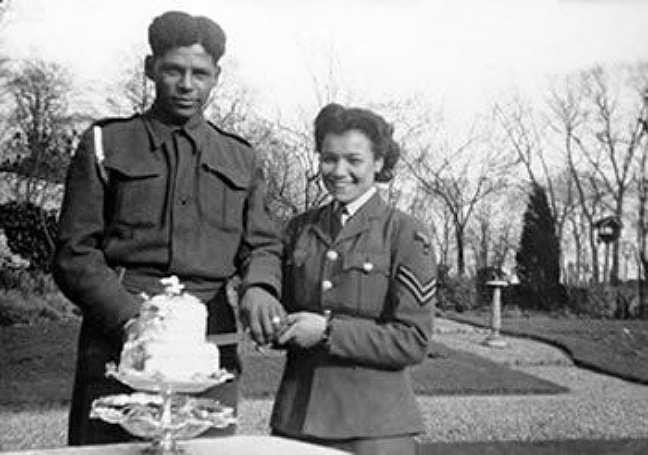
In 1943 Lilian married Ramsay Bader – Brett’s grandfather. Ramsay was born in Essex and his father was from Sierra Leone. He had served too, this time in the First World War. Ramsay was adopted as well. His parents were strong Quakers and pacifists.
Even though he understood their position, Ramsay was appalled by the Nazi regime’s treatment of Jesse Owens at the 1936 Olympics. So, Brett’s grandfather determined, if he could, to fight a regime that he said ‘would see coloured people suffer the same fate as Jews’.
As Brett explained: “Ramsay fought all the way through Europe from D-Day, through Belgium and Holland to Germany. My grandfather had lots of memories of those campaigns of people who didn’t come back; trapped in tanks during river crossings – that sort of thing.
“It was something that he had nightmares about.”
When interviewed by the Imperial War Museum about his wartime experiences Ramsay said that apart from one incident; thankfully, he did not encounter much racial prejudice during the war years.
Brett’s story of service also includes other relatives.
“My uncle was an officer in the Fleet Air Arm. He went off to Dartmouth at a similar sort of time to when Prince Charles attended. Geoffrey was one of the only black officers that served at the time. He achieved his wings and went on to serve on Ark Royal and completed two years in the Far East and South Asia Sea.”
Understandably, Remembrance Day holds a special significance for Brett. As an army officer he has participated in numerous parades. This year he will be at a small ceremony on the South Coast and he explained the thoughts that may well be in his mind.
“You look back on people’s sacrifices and the families that have lost loved ones and it’s not just service personnel, there’s many civilians that have also contributed, from lots of different nations that have also helped to make a difference. And I think it’s that moment just to reflect on the difference that they’ve made to make a change for other people.”
If you would like to read more about Brett’s relatives then you can find out more about Marcus Bailey here, Lilian Bader here and Ramsay Bader here.


